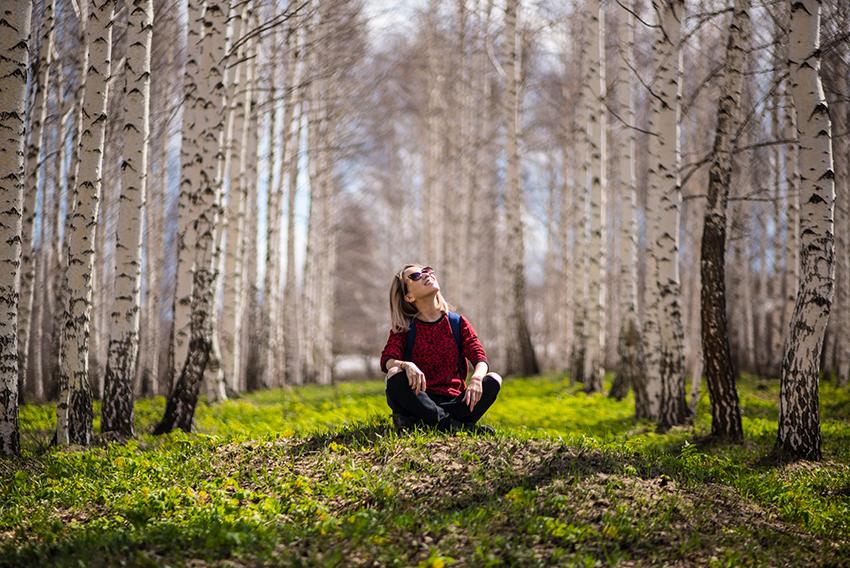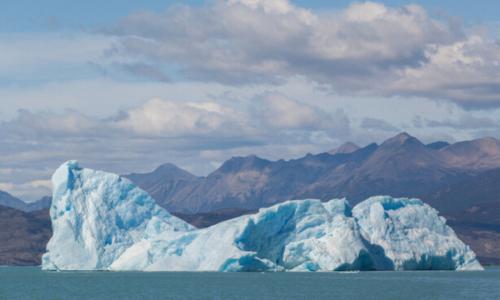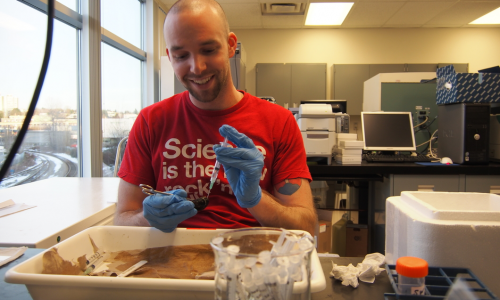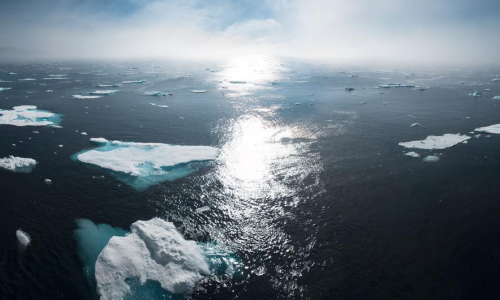
A shifting discourse surrounding climate change is necessary in order to invoke an insurgence of environmental consciousness drastic enough to positively effect the fate of the earth and those upon it. There are various ways this might be possible by discussing current and potential stylings and framings of media logics; the political economy of mass media and further possibilities of digital media; and possible reasons for, and solutions to the reluctant cynicisms of the public by brainstorming possible alternative media and dissemination practices of media.
The idea here is that as the climate issue is a complex and globally all encompassing phenomenon touching upon more or less everything, it exposes several sides of the media logic in journalists’ creative work. All at once, it mobilizes media logic’s power, reveals its limitations and its conflict with another type of discourse (science), and is triggering an embryonic transformation of news reporting in general. (Berglez, 2011, p. 450)
Media logic’s stylings in regard to climate change are many and varied, particularly over the last decade. As defined by Berglez, in order for news stories to engage the audience, the function of its style is “to individualize and personalize news; to emphasize geographical and/or cultural proximity; and to highlight conflicts between parties” (Berglez, 2011, p. 451). A current and relevant example of a news story that has received much local attention, and that falls within these guidelines, is the proposed Kinder Morgan pipeline expansion. When stories about the pipeline first began to appear in the news, there was much discussion about the economic potential of the expansion. This is personalizing as an individual is most often concerned with their own economic standing and potential. As opposition to the expansion grew, the personalization of news stories shifted to include more information about the damaging effects of a spill and the ways in which a spill would effect the economy, public beaches, local tourism and the like, which leads us to Berglez’s second point; emphasizing geographical and/or cultural proximity.
Of course, the pipeline expansion directly effects Vancouver and the surrounding areas. In fact, there is a documentary entitled, Directly Affected in the works that discusses the KM pipeline expansion and its consequences. SFU, Burnaby, and Vancouver’s public opposition to the project demonstrates an example of how the news utilizes geographic location to engage the audience, while the Coast Salish nation’s of this area have been very vocal in the news regarding their traditional use of and need for the ocean. There is an expression in Coast Salish territory that says, ‘when the tide goes out, the table is set’.
The final style rule of thumb is for news to highlight conflict, which I will spend little time discussing, as the proposed pipeline expansion has generated much conflict from cities, mayors, institutions, the public etc. The Burnaby Mountain protest had many individuals arrested and public figures such as, David Suzuki speaking out against the pipeline as well. It certainly made for interesting news.
In terms of framing news stories, there are a great many potential ways to engage in framing and reframing the issue of climate change. Much of news media in this area continues to maintain their focus on scientific fact, which may aid in convincing the public that there is a problem, however, it does not seem to illicit behavioural changes at the pace that is necessary. As Einstein has said, ‘you can’t solve a problem with the same thinking that created it’, and in many ways science and industry are what created climate change, or at least its potential, in the first place. To ask people to trust in that same science absolutely so that they change their very way of life, is counter intuitive. So much of communications, in regard to climate change, is shroud in science and fact that many do not trust nor understand. Why not attempt to reach people where they live? There are many aspects to our lives. What do we care about? Our families, friends, God. These are rarely included in discussion of the repercussions of climate change. There is an expression used by many First Nations that says, ‘We did not inherit the earth from our ancestors, we borrowed it from our grandchildren.’
In 2012, the National Post reported a study that suggested that two-thirds of the Canadian population believe in God. (National Post, 2012) Perhaps then, one could assume this might be similar across the globe, give or take. Would it not also be reasonable to assume that it might be wise to connect the earth, Creation and the values of the vast majority of the population to climate change, and to communicate to people in such a way that reflects those values to which they hold dear? Understandably this alone is not enough, but to refocus concrete and action-based suggestions to values of the public, may perhaps inspire people to take those actions simply in order to fulfill the identities to which they have spend their entire lives cultivating; and perhaps even see the importance in demanding accountability from those in the public sphere.
The political economy of the mass media and its influence on perceptions of climate change upon the public seems to have been more detrimental than helpful or informative. “While the main principle of democratic news production has been that news media serve as a check on the state, and hold those in power accountable to the public, in practice corporate controlled media have been argued to act systematically in the service of state power”(Boykoff & Yulsman, 2013, p. 361). The top-down feature of mass media and the privatization of mass media outlets has news production demonstrating strong biases in favour of the state, rather than a ‘check on the state’. The dynamic between corporate control and the state makes objectivity and accuracy in reporting virtually inconceivable. Audiences are likely to either, take these discursive practices as absolute or to dismiss them altogether, which results in very little effective change in the search for climate change truth. This in turn, does little to encourage public interest and/or engagement with public policy.
Similarly, with the onset of digital media and the sheer magnitude of information available to the public, it can be difficult to sift through sources in order to discover accurate and reliable information particularly in regard to climate change. Paradoxically however, digital media has also allowed for information sharing in such a way that gives a voice and venue to information not normally expressed within the mass media. There are less constraints in terms of ownership and censorship. The Tsleil-Waututh Sacred Trust Initiative, dedicated to opposing the Kinder Morgan pipeline expansion and who is battling the National Energy Board’s alleged illegitimate approval of the pipeline, has created many groups and profiles via social media. This allows them to share information and news that is consistent with what they, themselves are attempting to accomplish. That being said, the opposition has the ability to do the very same thing, making it difficult for others to decipher between them, which can cause frustration, confusion and cynicism.
As identified by Cross et al., this reluctant cynicism, or
public apathy, indifference and hostility to climate action could be traced to a variety of different factors, including: manipulation of the public by commercial media, corporate public relations and advertising; people’s preference for the soporific pleasures of consumer society and commercial culture; an inability (or refusal) to grapple with the complexities of politics, science or economics; lack of free time or adequate resources to engage in sustainability, either personally or politically; and the sheer difficulty of changing patterns of (individual) behaviour which have become habitual, or are imposed by dominant structures and institutions. The most prevalent explanations, however, emphasized the insidious dominance of ‘money’ (and associated values of materialism) in all aspects of our lives, making it virtually impossible for most people, businesses or governments to see or think beyond their immediate economic self-interest. (Cross et al., 2014, p. 19)
What then, are we to do? Alternative forms of media that reach the audience as both individuals as well as members of a community are imperative to discussions of climate change. It is not enough to tell people, they must be shown that this effects their individual lives as well as the lives of those around them. What I have noticed in my travels to Copenhagen and having the opportunity to immerse myself into local life, is that, the television shows they watch, for example, are primarily all filmed in Copenhagen. Because Denmark is such a small country in area, geographic locations are recognizable in television. Special interest stories are often broadcast from landmarks important to Danes, and when watching the news being filmed in the evening from Tivoli where an individual had just spent the afternoon, provides a sense of being connected to and a part of their various forms of media.
In the same sense alternative media has the opportunity to localize climate change in order to personalize the subject as well as provide a sense of communal responsibility. There is an opportunity within alternative media to highlight issues of climate change in such a way that gives the audience options for engagement. Perhaps media dedicated to providing lists of local protests, public forums and dialogues, organizations, and/or current climate conflicts which are seeking attention and assistance, could provide individuals with a map of concrete action. Such media could highlight stories of global successes and provide suggestions for changing public policy. A medium such as this may assist in lessening public cynicism because they are give options as to how to engage in such a way that actually has the potential to produce real change.
While discussions of climate change have arrived on the mainstream and there are those dedicated to changing their own consumption practices, it is clear that change is not occurring fast enough. There is too much discussing and not enough doing. In order for discussions of climate change to shift into climate action, various forms of media and those who use them, have an obligation to question and change media logics in order to lead the public to act. The discursive elements of mass media are often frustrating and lead to inaction, however alternative forms of media have the potential to create an environmental revolution, if such media is used in accordance with the values of its targeted demographic. It can also provide insights as to how to engage so that real change might actually be possible.
Sources
Berglez, P. (2011). Inside, outside, and beyond media logic: journalistic creativity in climate reporting. In Media, Culture & Society, 33(3) 449-465.
Boykoff, M., & Yulsman, T. (2013). Political economy, media, and climate change: sinews of modern life. In WIREs Climate Change, 4(3) 59-371.
Cross, K., Gunster, S., Piotrowski, M., & Daub, S. (2014). News Media and Climate Politics: Civic Engagement and Political Efficacy in a Climate of Reluctant Cynicism.
Gunster, S. Radical Optimism: Expanding Visions of Climate Politics in Alternative Media.Simon Fraser University.
Boswell, R. (2012). Religion not important to most Canadians, although majority believe in God: poll. National Post.















